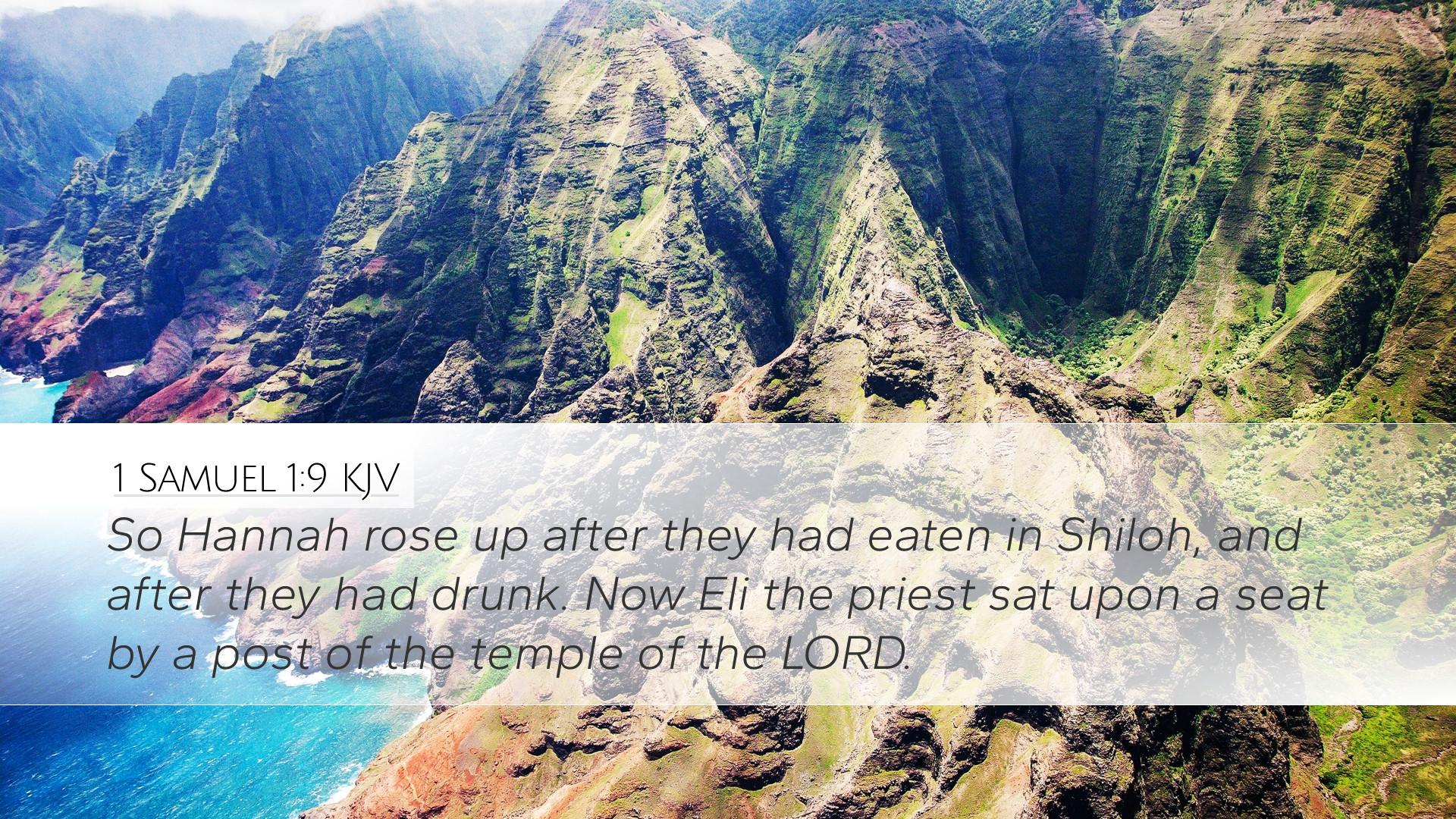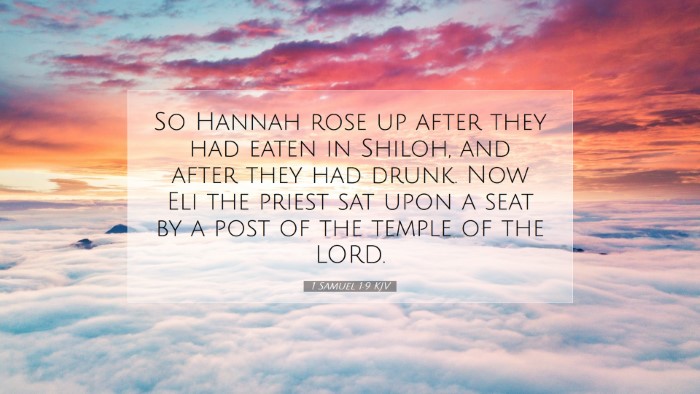Commentary on 1 Samuel 1:9
Bible Verse: 1 Samuel 1:9 - "So Hannah rose up after they had eaten in Shiloh, and after they had drunk. Now Eli the priest sat upon a seat by a post of the temple of the Lord."
Introduction
This verse marks a significant moment in the life of Hannah, a woman of deep faith facing personal anguish. The context of this passage provides rich theological insights into the nature of prayer, the role of priesthood, and the unfolding providence of God in the lives of His people.
Contextual Analysis
Hannah's story begins in a cultural and religious setting where she faces barrenness, a severe challenge in her society. Ellen G. White's writings shed light on the emotional strain she experienced, emphasizing her dedication and desire for a child. The overall setting in Shiloh, which served as the central place of worship for the Israelites, is vital for understanding the gravity of her actions.
Matthew Henry on Hannah's Distress
Henry notes Hannah’s state of mind: she is deeply troubled by her inability to conceive. This highlights the theme of despair that contrasts with the hopes that Hannah harbors. Her arising “after they had eaten” indicates she was perhaps driven from the table due to her grief.
Albert Barnes on Eli's Position
Barnes comments on the character of Eli, the priest, who is described as sitting on a seat by a post of the temple. This not only signifies his role as a priest but also his responsibility toward the people's spiritual needs. The posture of sitting rather than actively ministering reflects a moment of waiting, possibly indicating a lethargy in leadership that would later have consequences for Israel.
Adam Clarke on Shiloh’s Significance
Clarke points out that Shiloh, being the established place for worship, becomes crucial in Hannah’s journey of faith. He notes that her approach to God in prayer signifies an essential act of worship—a move from despair to seeking divine intervention.
Theological Insights
Prayer as a Response to Personal Affliction
Hannah's act of rising up to pray serves as a powerful example of how one can move from a place of despair to actively seeking God. Her situation prompts us to reflect on our own responses to trials—whether we retreat in silence or bring our pains before God.
The Role of the Priest
In this passage, Eli serves as a key figure, embodying the priestly role that mediates between God and man. His position by the temple allows him to witness the dynamics of faith and desperation that often accompany sincere prayer.
Application for Believers
- Faith in the Face of Trials: Hannah's determination to pray, despite her emotional turmoil, serves as an encouragement for believers to persist in faith regardless of circumstances.
- Seek God in Corporate Worship: The setting in Shiloh highlights the importance of community worship—believers are reminded to gather not only for sustenance but also for spiritual support.
- Intercessory Prayer: The role of Eli also calls believers to intercede on behalf of others, recognizing the importance of relationship and responsibility within the body of Christ.
Conclusion
1 Samuel 1:9 invites readers into an emotionally charged narrative that underscores the importance of sincere prayer in times of distress. The involvements of Hannah, Eli, and the setting of Shiloh bring forth discussions about faith, leadership, and the communal aspects of worship that continue to resonate with pastors, students, and theologians alike.


